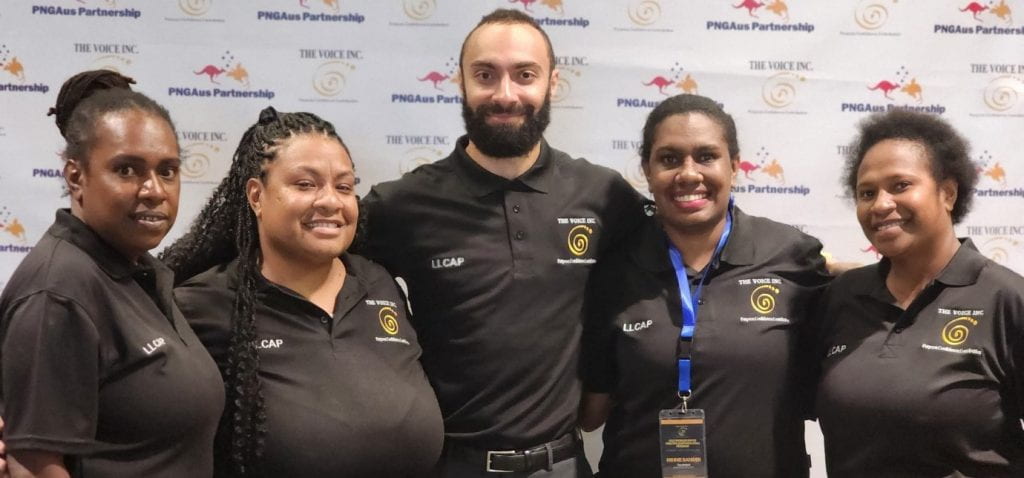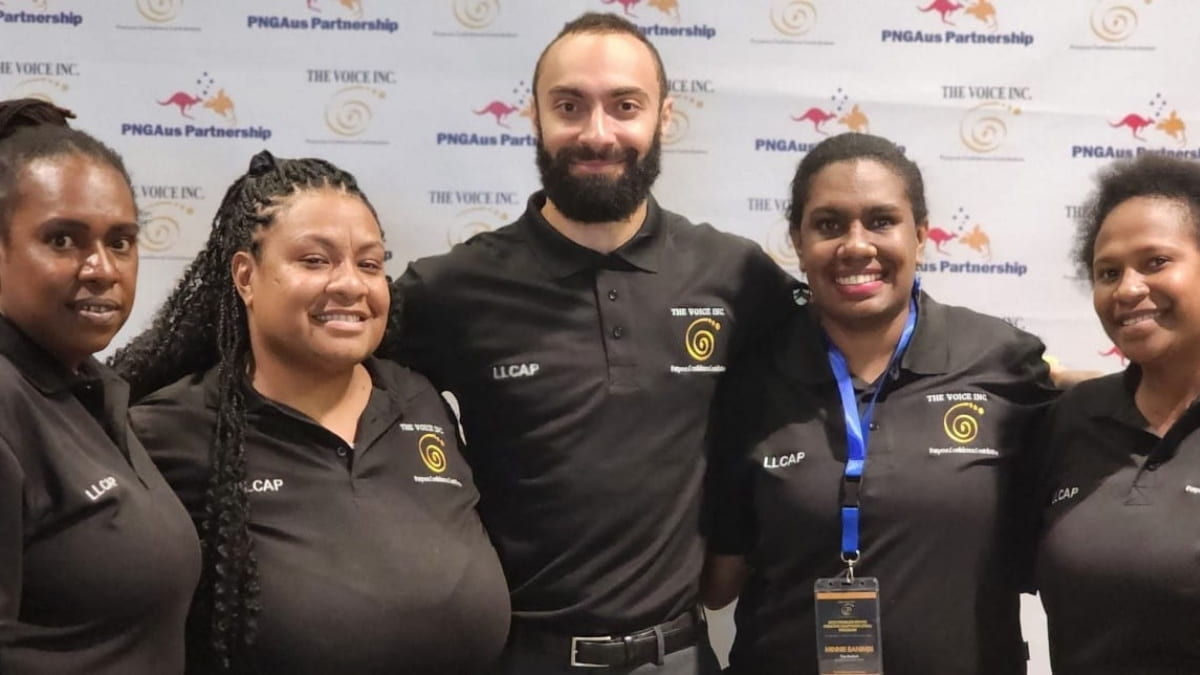Guest blog written by Minnie Banimbi, Salome Delabu, Michelle Fimaimba, Cieran Kelly, Eunice Takendu
Embarking on a journey through the PDIA course, we discovered a rich tapestry of skills crucial for effective problem-solving. We focused on the essentials of collective action, including teamwork, the clear articulation and deconstruction of problems, action facilitation and authorization, and the effectiveness of tackling large problems with small, iterative steps. Additionally, the importance of ‘soft’ skills was emphasized throughout our learning experience.
Summarizing our time in the course, it’s apparent that the skills and tools offered are versatile and extend far beyond the professional sphere, serving us in everyday life as well.
Addressing Tax Knowledge in PNG
Over a productive 12-week span, we, the Tax Guardians, dove into our fishbone diagram and set out to enrich our understanding of the tax regime in Papua New Guinea (PNG).

We launched an online survey titled “The effectiveness of the tax regime in PNG – A Survey,” inviting 50 participants and receiving feedback from 21 respondents. This unveiled a common thread – a definitive lack of tax knowledge among citizens, which resonated with one of the critical issues identified in our fishbone diagram.
Further advancement came through discussions with various authorizers during the course. These conversations enriched our fishbone diagram, particularly refining our problem statement. A significant milestone was securing authorization from the IRC to carry out our survey within the IRC office premises. This engagement not only propelled our project but also expanded our professional network, introducing us to individuals from diverse backgrounds.
Insights and Progress
Our efforts throughout the course have led to meaningful insights into the tax knowledge gap in PNG. Through the survey’s responses, it became evident there is a prevalent issue: lack of awareness and understanding of the tax system among taxpayers.
The approval by the IRC marked a pivotal point in our project, bridging the gap between theoretical planning and practical application. Engaging different stakeholders gave us a clearer vision and affirmed the importance of wide-reaching support for projects like ours.
A Changing Approach to Problem-Solving
This course has furnished us with a robust set of tools for navigating complex issues, relevant across any role or industry. The problem-solving techniques we’ve learned place emphasis on setting ambitious goals and making incremental progress toward achieving them. In essence, we’ve been taught to dream big but take disciplined, manageable steps forward.
Applying Our Newfound Knowledge
One of the key methodologies we’ve adopted for dissecting problems is the fishbone diagram. Before the course, we tended to approach problems from a high-level perspective, often overlooking the intricacies that contribute to the broader issue. With the fishbone diagram, we were able to distil complex problems into smaller, manageable components, making it instrumental for internal communication as well as for discussions with external parties—streamlining and objectifying conversations that might otherwise be charged by emotion, especially concerning a sensitive subject like taxes.
Looking forward, we plan to apply this tool widely, addressing issues that are often muddled by vague definitions and poorly targeted attempts at resolution.
Words of Wisdom for Fellow PDIA Practitioners
As John C. Maxwell aptly put it, “Teamwork makes the dream work.” This was a truth that resonated throughout our experience in the PDIA course. Persistence, we found, is a cornerstone in the pursuit of our objectives.
Nurturing your team through acts of kindness forges a bond that translates to better collaboration and trust. Even when faced with an overwhelming start, taking small steps consistently can lead to significant results over time.
And remember, your team is your greatest asset—they offer emotional and mental support that is invaluable.
In conclusion, taxes are rarely a topic greeted with enthusiasm, yet by facing it head-on with a structured and collaborative approach, we can better navigate the challenges it presents.
This blog was written by participants who completed a 12-week PDIA for PNG online action-learning program from August – December 2023. 36 participants successfully completed this program.
